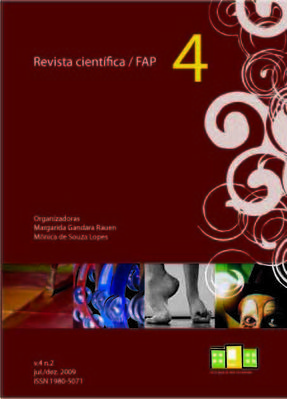A ESTRELA QUE DEVERIA TER SIDO E NÃO FOI
DOI:
https://doi.org/10.33871/19805071.2009.4.2.1615Resumo
Este artigo analisa a adaptação cinematográfica efetuada por Suzana Amaral do
romance A hora da estrela, escrito por Clarice Lispector, cujo enredo apresenta o narradorfundido contraditória e simultaneamente em escritor, personagem e narrador das desventurasde sua personagem Macabea, uma jovem alagoana que vive no Rio de Janeiro. Ao sepreocupar em enfatizar as agruras dessa datilógrafa semi-alfabetizada, ignorante e pobre, ofilme acaba mostrando certos estereótipos do cinema brasileiro que frequentemente associapobreza à sujeira e à vulgaridade.
PALAVRAS-CHAVE: A hora da estrela, romance, cinema.
Downloads
Downloads
Publicado
Como Citar
Edição
Seção
Licença
Os autores detém os direitos autorais, ao licenciar sua produção na RevistaCientífica/FAP, que está licenciada sob uma licença Creative Commons. Ao enviar o artigo, e mediante o aceite, o autor cede seus direitos autorais para a publicação na referida revista.
Os leitores podem transferir, imprimir e utilizar os artigos publicados na revista, desde que haja sempre menção explícita ao(s) autor (es) e à Revista Científica/FAP não sendo permitida qualquer alteração no trabalho original. Ao submeter um artigo à Revista Científica/FAP e após seu aceite para publicação os autores permitem, sem remuneração, passar os seguintes direitos à Revista: os direitos de primeira edição e a autorização para que a equipe editorial repasse, conforme seu julgamento, esse artigo e seus metadados aos serviços de indexação e referência.


